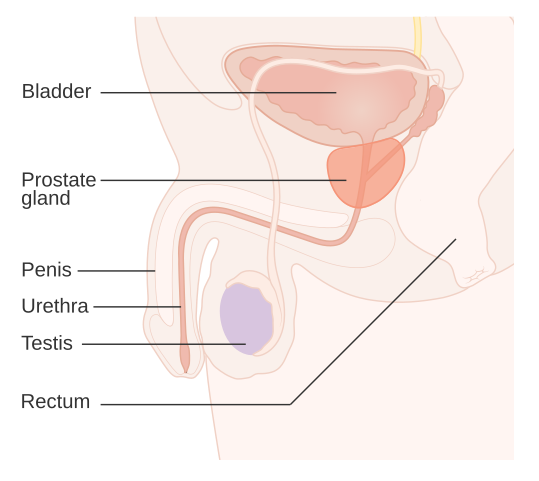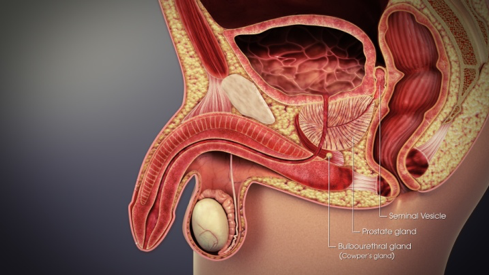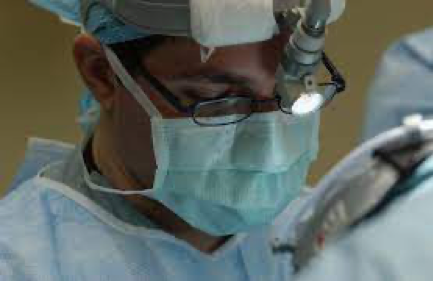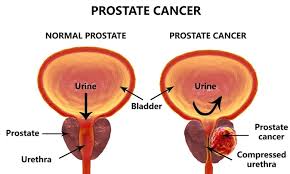In this article, we will delve into the risk factors associated with prostate cancer, the importance of screening, and the various top prostate cancer treatment options available. Prostate cancer is a significant health concern for men worldwide. As the second most common cancer in men, understanding the risk factors, importance of screening, and available treatment options is crucial for early detection and effective management.

Risk Factors for Prostate Cancer
Several factors can contribute to an increased risk of developing prostate cancer, including:
1) Age
Prostate cancer risk increases with age, particularly after the age of 50.
2) Family History
Having a close relative, such as a father or brother, with prostate cancer increases the risk.
3) Ethnicity
African-American men have a higher incidence of prostate cancer compared to men of other ethnic backgrounds.
4) Diet
A diet high in red meat and high-fat dairy products and low in fruits and vegetables may contribute to an increased risk.
5) Obesity
Obesity has been linked to a higher risk of aggressive prostate cancer.
Screening for Prostate Cancer
Screening for prostate cancer involves regular evaluations to detect any abnormalities in the prostate gland. The two primary methods of screening include:
1) Digital Rectal Exam (DRE)
During a DRE, a urologist examines the prostate gland by inserting a gloved, lubricated finger into the rectum to feel for any irregularities or abnormalities in the size, shape, or texture of the gland.
2) Prostate-Specific Antigen (PSA) Test
The PSA blood test measures the levels of a protein called prostate-specific antigen in the blood. Elevated PSA levels may indicate the presence of prostate cancer, although further testing is required to confirm the diagnosis.
Top Treatment Options for Prostate Cancer
 Treatment for prostate cancer depends on various factors, including the stage and aggressiveness of the cancer. Common treatment options include:
Treatment for prostate cancer depends on various factors, including the stage and aggressiveness of the cancer. Common treatment options include:
1) Active Surveillance
For slow-growing or early-stage prostate cancer, closely monitoring the cancer through regular check-ups may be appropriate.
2) Surgery
Surgical removal of the prostate gland, known as a prostatectomy, may be recommended to remove the cancerous tissue.
3) Radiation Therapy
High-energy X-rays or other forms of radiation are used to target and destroy cancer cells.
4) Hormone Therapy
This treatment aims to suppress the production of hormones that fuel the growth of prostate cancer cells.
5) Chemotherapy
In advanced cases, chemotherapy may be used to kill cancer cells or slow their growth.
Contact Fifth Avenue Urology for Top Prostate Cancer Treatment
If you or a loved one has been diagnosed with prostate cancer or is concerned about the risk factors, the experienced team of urologists at Fifth Avenue Urology, led by Dr. Yaniv Larish, is here to provide comprehensive and compassionate care.
Our dedicated team will work with you to develop a personalized treatment plan based on your specific needs and the stage of prostate cancer. We understand the importance of early detection and are committed to providing you with the highest level of care and support throughout your journey.
Don’t face prostate cancer alone. Our compassionate team is here to support you every step of the way. Reach out to Fifth Avenue Urology now and take control of your prostate health.
FIFTH AVENUE UROLOGY
5 East 83rd Street
New York, NY 10028
Phone: 212-675-3186
Website: https://www.fifthavenueurology.com/
 Dr. Larish is a urologist and surgeon treating women and men with a variety of urological conditions. His expertise is in treating complex kidney stones, enlarged prostates (BPH), incontinence, erectile dysfunction, infertility, and urological oncology (prostate, bladder, kidney, and adrenal cancers). He is an expert in general urology and is often consulted for second opinions.
Dr. Larish is a urologist and surgeon treating women and men with a variety of urological conditions. His expertise is in treating complex kidney stones, enlarged prostates (BPH), incontinence, erectile dysfunction, infertility, and urological oncology (prostate, bladder, kidney, and adrenal cancers). He is an expert in general urology and is often consulted for second opinions.







 Treatment for prostate cancer depends on various factors, including the stage and aggressiveness of the cancer. Common treatment options include:
Treatment for prostate cancer depends on various factors, including the stage and aggressiveness of the cancer. Common treatment options include:



 All patients diagnosed with prostate cancer who visit our urology clinic, inevitably ask ‘what is the future outlook for prostate cancer treatment?’ Prostate cancer, like any other type of cancer, can be life-threatening, especially when it is an advanced stage. However, even the most experienced cancer specialists and urologists may not be able to say exactly how long prostate cancer will live.
All patients diagnosed with prostate cancer who visit our urology clinic, inevitably ask ‘what is the future outlook for prostate cancer treatment?’ Prostate cancer, like any other type of cancer, can be life-threatening, especially when it is an advanced stage. However, even the most experienced cancer specialists and urologists may not be able to say exactly how long prostate cancer will live.